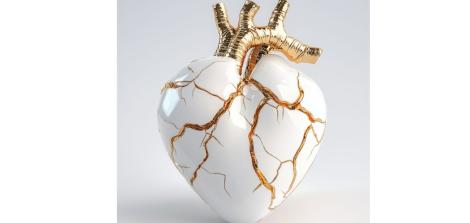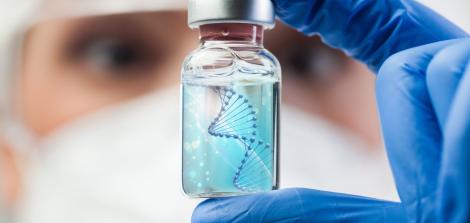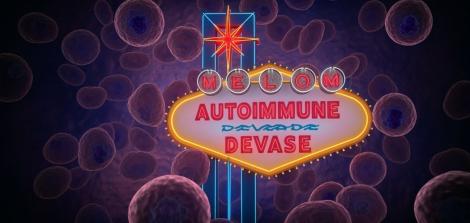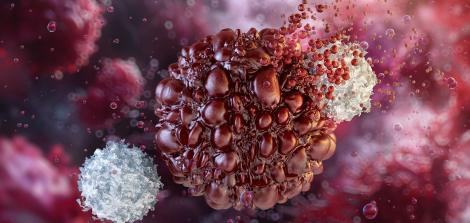"The cancer treatment revolution does not stop": An interview with Professor Cyril Cohen
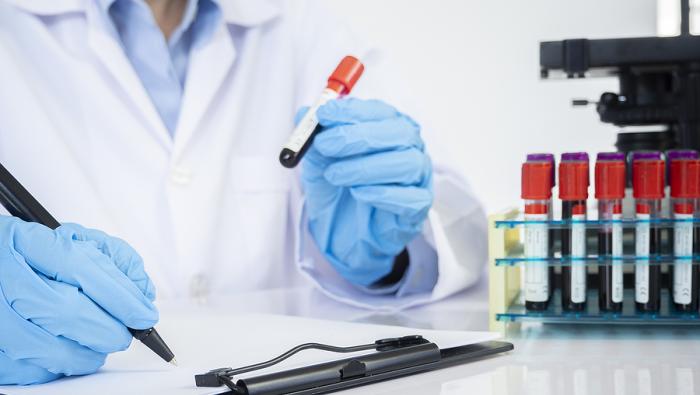
A few years ago, Prof. Cyril Cohen took his children to visit his hometown, Marseille. Among other places, they visited the school he went to and met one of the staff members there, who even after all these years remembered him. "I remember your father from when he was 12," the staff member told them, "he would walk around with books instead of playing soccer and when I asked him what he would like to do when he grows up he gave an answer that is not typical of a child this age: genetic engineering".
12-year-old Cyril knew what he was talking about. Today, Prof. Cyril Cohen heads the Immunology and Immunotherapy Laboratory at Bar-Ilan University and is a world-renowned scientist in the field of genetic engineering of immune cells. Among other things, Prof. Cohen also serves as Deputy Dean of the Mina and Everard Goodman Faculty of Life Sciences at the university, as president of the Israeli Society for Cancer Research, and as a member of several Ministry of Health committees that approve clinical studies and oversee public health.
In between his meetings with students and his time at the laboratory, we were able to catch Prof. Cohen for a short conversation about the future of immunotherapy and personalized cancer treatments, about the intersections between researchers in laboratories and physicians in the field, and about the qualities that distinguish good scientists.
Was the staff member from your school right? Did you already know at the age of 12 that you would be doing what you are doing today?
I did not remember that he asked me this question and the answer I gave, but I do remember that to be interested in such a subject instead of soccer was considered a great sin in Marseille. It’s true, in high school I was already interested in the immune system and when I immigrated to Israel in 1992, at the age of 17, I continued on that path, and this is also the subject I chose to study for my Bachelor’s Degree. For my Master’s Degree, I focused on developing vaccines as part of the collaboration between the Technion and Hadassah Hospital and for my third degree I investigated anti-cancer antibodies. For my post-doctoral project in the United States, I focused on patients’ T-cells, which is also the area I investigate today."
What does your laboratory at Bar Ilan University do?
We explore ways to improve the immune system's anti-cancer response, and develop treatments that engineer the body's immune response by introducing specific genes into immune cells. Our expertise is engineering the immune response against cancer by modifying T cells, which are the immune cells responsible for identifying and eliminating cancer cells. My basic perception as a researcher is very pragmatic: if I have the knowledge, I need to use it. I want our insights at the laboratory to be translated into actions that can help patients. This wasn’t always the common academic outlook.
These things illustrate the gap that sometimes exists between the researchers at the academic “ivory tower” and the HCPs in the field who meet patients. How do you think we can close this gap?
It’s true, scientists and physicians don't always speak the same language. The researcher looks at a mechanism and investigates it. They can discover an amazing mechanism and conduct an experiment on a particular type of cancer in a particular mouse and it might work wonderfully. As opposed to that, you have the doctor who says, 'Okay, the mechanism you have discovered is nice, but I have patients here who are waiting for help,' and unfortunately this discourse doesn't always happen. This gap, between what I know and think as a researcher at the laboratory, and what actually happens with patients, in my opinion translates into 10 or 20 years. You need to bridge gaps, create a common language, collaborative work patterns, hold joint conferences, and strengthen the bonds between these two communities.
As someone who was born and raised in France and did a post-doctorate in the United States, is there any truth to the statements in academic institutions about the "Israeli head"?
Absolutely. Israeli chutzpah and creativity stand out also in academic institutions. In order to break through, it’s not enough to just think outside the box; you shouldn't be afraid of taking risks, and this requires strong motivation. I think that academic institutions in Israel certainly shows courage. Researchers tend to get to the bottom of things and are unwilling to accept reality as-is, which is what motivates them. I can speak for myself and say that as a scientist, when I see suffering, I just can't put up with it.
Fighting fire with fire: Immune system engineering
You once called what your laboratory does “fighting fire with fire.” Can you explain?
Gladly. Cancer cells are actually cells that change their behavior, but they are still body cells, so it is unclear to the body whether they pose an absolute threat or not. Naturally, the system that is responsible for this distinction and for protection against various diseases, including cancer, is the immune system. The immune system is able to detect very fine differences between a normal cell and a cancerous cell, but sometimes it fails to do this. One of the reasons for this failure is the cancerous tumor's ability to neutralize or inhibit the immune system’s activity. Our goal is to use those systems that are supposed to suppress the immune system and turn them into systems that will actually spur the immune system to fight cancer cells.
A study you are conducting in collaboration with Hadassah Hospital, with a 90% response rate, has been recently published. Can you tell us about it?
We actually created the first Israeli-made therapy in the field of immune system engineering. From the basic concept, through the design stage, the creation of the molecule at my laboratory, to the patient's bed. On one hand the molecule we developed identifies cancer cells and on the other hand it activates T cells, so it is sort of a bridge between the immune system and cancer, and we use a virus to insert it into cells. As part of our research, we engineered T-cells of myeloma and amyloidosis patients; the response rate in myeloma patients reached 90% while that of amyloidosis patients was as high as 100% - complete response. It's literally fighting fire with fire.
Are the insights from this study limited to myelomas or do they apply to other types of cancer?
You need to understand that each cancer type has its own characteristics and its hiding mechanisms, so for each type we need to find the right amount of immune changes. This has become our main approach in recent months – developing different tools and then appropriately combining them based on the cancer type.
I guess there are also disappointments along the way. Not every experiment translates into a 90% success rate in the field.
I think this is almost a daily routine in the life of a researcher. Sometimes you suddenly have a flash of brilliance as you are riding your bike to the laboratory and thinking about an article you've read. You draw it, plan it, order the substance or synthesize it, do the experiment, and it works amazingly. And in other cases, it doesn't. I always tell my students, there is no such thing as a failed experiment. It wasn't the experiment that failed, but rather that your hypothesis was wrong. Now you need to analyze the results, understand their meaning and learn from them. We can say this is fun but at the same time this is also the greatest tragedy of research: sometimes what you get isn't what you expected.
How do you recover from a situation in which a lot of work is invested, but the results aren’t what you expected?
One of the qualities of a good researcher is the ability to immediately stand up after you fall. You fell? Get up, do not despair. It is important to stay enthusiastic and not to despair, even if the experiment did not turn out like you wanted or did not give the desired results, because I believe something will eventually succeed, and for those people who will receive this treatment, it is worth investing all these years and efforts, and failures are part of the learning curve. Saving a single soul is the same as saving an entire world. I believe that.
The future of cancer treatment: Personalized medicine for the masses
Personally, are you optimistic about humanity's fight against cancer?
We have to be optimistic. What we have might not be enough for the individual patient at the oncology department but I have no doubt that the cancer treatment revolution isn’t about to stop; we understand more and more and are also able to shorten the time between when such discoveries are made and their actual application in the field.
Ultimately, is the coming decade expected to be dramatic in terms of the fight against cancer?
I have no doubt. We are constantly learning and discovering new things. For example: The role of the microbiome, that unique bacterial population that everyone has in their body, in fighting cancer. In the past, we didn't think these things had an effect, nor did we have a way of testing them because we didn’t have the right technologies. Now we have the right technologies and they are continuing to evolve.
Can you give us a glimpse at what cancer treatment will look like in the future?
Consider that maybe in 5 years you will arrive at the hospital, give a blood sample, and the laboratory in the back will be able to engineer your cells, return them to your body, give you a capsule of bacteria to swallow and send you home. That's the vision. My dream vision is that each cancer type I will have its corresponding molecule here in the cupboard behind me, and I will only have to adjust the drug to each patient's genetic characteristics. You can call it personalized medicine for the masses.
Last Updated Date : 05/01/2026




